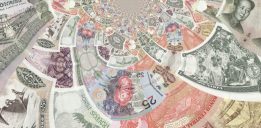Bank of Canada Warns Housing Debt Is a Major Risk to Canadian Economy
Household indebtedness and rising house prices are putting the Canadian economy at risk. That’s what Bank of Canada governor Stephen Poloz said Thursday. Households face deeper financial vulnerabilities—and there are no signs that it will end, suggested the recent Financial System Review from the Bank of Canada. (Source: “Bank of Canada warns about huge mortgages, growing housing debt,” CBC, December 15, 2016.)
The Bank of Canada governor said the Bank of Canada chief raised two critical points: household indebtedness and imbalances in the housing market. A report noted that half of high ratio mortgages in Canada’s largest city, Toronto, owe more than 450% of their incomes. (Source: Ibid.)
Judging by home prices, that might be an understatement. The problem that’s developed in Canada might be familiar to Americans. With interest rates at historically low levels for several years, households continued to use credit for both home purchase and consumption.
In the U.S., there has been a revival of dangerous levels of debt. But the biggest source of the problem comes from independent auto-loans. Many are defaulting. In Canada, housing prices and household debt levels are reaching alarming levels. In the third quarter, the debt level of Canadian households stood at 166.9% of disposable income. That means a debt of $1.67 for every dollar of disposable income. (Source: Ibid.) The other problem is that this level of debt creates political and financial uncertainty.
Having recognized the problem, soaring real estate prices in cities like Vancouver or Toronto are forcing governments and banks to take action. But for every knot a solution untangles, it creates another issue.
Leaders might be pressured to take too rash a decision—or none at all. So far, the first steps have focused on the outside “fuel” of the housing bubble. Monetary and political officials have taken steps to try to curb the frenzy of some foreign investors. These foreign investors must now pay a tax on the resale profit.
The government also raised the minimum down payment for the purchase of a property in excess of 500,000 Canadian dollars (about US$360,000) from five percent to 10%. At the local level, the Province of British Columbia imposed an additional 15% tax last August on the purchase of property in Vancouver by foreign nationals. Poloz said these measures have begun to cool the real estate market in Vancouver, but it is too early to determine the new trend arising from these tax provisions.
Indeed, investors may simply have shifted to other Canadian real estate markets. There are no signs of similar moderation in the Toronto area. (Source: Ibid.) Moreover, a slowdown in the housing market doesn’t help resolve the current concerns about financial stability. Household debts remain at a very high level and the risk of bursting the bubble would be disastrous for those who have invested so much in their properties.






